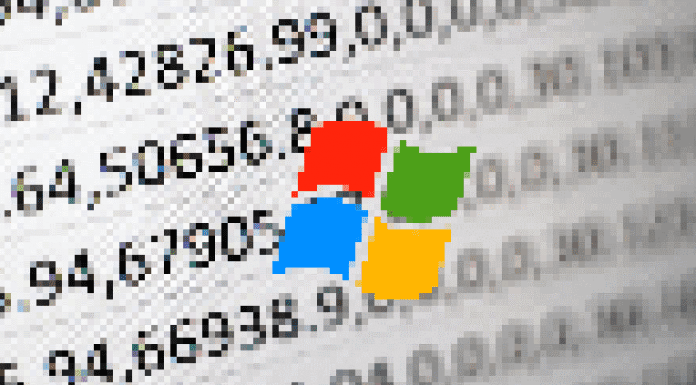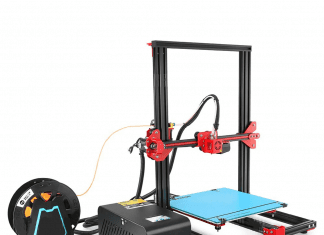Trading in the modern world can be a complex and challenging endeavor, especially when considering the integration of Quantum AI and Big Data. Market dynamics are constantly evolving, influenced by a myriad of factors such as technological advancements, regulatory changes, and geopolitical events. To stay competitive and profitable, traders must understand and adapt to these complexities. Fortunately, the advent of Quantum AI, in combination with the vast insights offered by Big Data, has the potential to revolutionize the way we trade, offering unprecedented levels of analysis and decision-making speed.
Understanding the Complexities of Modern Trading
Before delving into the applications of Quantum AI in trading, it is important to first understand the challenges that traders face in the modern era. The evolution of trading systems has been driven by the need for increased speed, efficiency, and accuracy. Traditional trading models have been replaced by more sophisticated algorithms capable of executing trades in microseconds.
Furthermore, the rise of high-frequency trading has further raised the stakes, as market participants strive to gain a competitive edge through faster execution and arbitrage opportunities. In addition, globalization has led to interconnected markets, making it essential for traders to analyze multiple factors and data sources in real-time to make informed decisions.
The Evolution of Trading Systems
Trading systems have come a long way since the days of open-outcry trading on the trading floors. The advent of computers and internet connectivity paved the way for electronic trading platforms, allowing traders to execute trades from anywhere in the world. This shift from manual to automated systems improved speed and efficiency.
Over time, new technologies such as artificial intelligence (AI) and machine learning (ML) have been integrated into trading systems, enabling traders to analyze vast amounts of data and identify patterns that humans might overlook. This has led to the development of sophisticated trading algorithms that can make split-second decisions based on complex market conditions.
The Role of High-Frequency Trading
High-frequency trading (HFT) has become a dominant force in today’s financial markets. HFT firms leverage advanced technologies and powerful algorithms to execute trades at lightning speed, capitalizing on small price discrepancies. These firms rely on speed, low latency, and co-location proximity to exchanges to gain a competitive advantage.
While HFT has revolutionized trading and provided liquidity to the markets, it has also raised concerns about market stability and fairness. Some argue that HFT creates a two-tiered market, where the fastest and most sophisticated players have an unfair advantage over others. Regulators are constantly monitoring this space to ensure a level playing field for all market participants.
The Impact of Globalization on Trading
Globalization has transformed the trading landscape, with markets becoming increasingly interconnected. Traders now need to monitor multiple markets and data sources simultaneously to identify opportunities and manage risks. This has led to the need for advanced technology solutions that can process vast amounts of data in real-time.
Furthermore, geopolitical events and macroeconomic factors can have a significant impact on trading outcomes. Traders must be aware of global developments and navigate through uncertain times. The ability to analyze and interpret complex data promptly has become critical for success in today’s global marketplace.
The Rise of Quantum AI Technology
Quantum AI represents the next frontier in technological innovation. It combines quantum computing and AI to create a powerful tool that can tackle complex problems and optimize decision-making in various industries, including trading.
Defining Quantum AI
Quantum AI harnesses the principles of quantum mechanics to enable more efficient data processing and analysis. Quantum computers leverage quantum bits, or qubits, which can exist in multiple states simultaneously. This unique property allows quantum computers to perform computations at a speed and scale that far surpasses classical computers.
When combined with AI algorithms, quantum computers can analyze vast amounts of data and discover intricate patterns that could potentially lead to more accurate predictions and better trading strategies.
The Intersection of Quantum Computing and AI
Quantum computing and AI are two powerful technologies that, when combined, have the potential to unlock new possibilities and overcome the limitations of classical computing. Traditional AI models rely on classical computers, which are limited by computational power and memory constraints.
Quantum AI, on the other hand, can leverage the massively parallel processing capabilities of quantum computers to solve complex optimization problems and pattern recognition tasks more efficiently. This opens up new avenues for traders to gain insights from vast amounts of data and make better-informed trading decisions.
The Potential of Quantum AI in Various Industries
Quantum AI has the potential to revolutionize various industries, and trading is no exception. By leveraging quantum computing and AI algorithms, traders can analyze complex market data and optimize trading strategies in real-time.
Quantum AI can also unlock new insights and identify hidden patterns that may not be apparent to traditional AI models. This can lead to the development of innovative trading strategies that have the potential to outperform traditional approaches.
Quantum AI in Trading
As trading becomes more complex and data-intensive, the application of Quantum AI in trading is gaining traction. Traders and financial institutions are exploring the potential benefits and risks of implementing Quantum AI solutions in their trading operations.
The Application of Quantum AI in Trading
Quantum AI can be applied to various aspects of trading, such as alpha generation, risk management, and portfolio optimization. By leveraging the power of quantum computing and AI, traders can analyze vast amounts of market data and generate predictive models that can identify alpha-generating opportunities.
In addition, Quantum AI can help traders manage risks more effectively by analyzing large datasets and identifying potential market disruptions or systemic risks. This can enable traders to adjust their positions and mitigate potential losses.
Furthermore, portfolio optimization can benefit from Quantum AI algorithms, which can analyze vast amounts of data and identify optimal asset allocation strategies that maximize returns while minimizing risks.
Benefits of Quantum AI for Trading
The potential benefits of Quantum AI in trading are numerous. By leveraging the power of quantum computing and AI, traders can gain insights from vast amounts of data and make more accurate predictions. This can lead to improved trading strategies and better risk-adjusted returns.
In addition, Quantum AI can help traders identify hidden patterns and correlations that may not be apparent to traditional AI models. This can provide a competitive edge and enable traders to capitalize on market inefficiencies.
Furthermore, Quantum AI has the potential to enhance trading system performance by optimizing trading algorithms and reducing execution latency. This can improve trade execution and minimize transaction costs.
Risks and Challenges of Implementing Quantum AI in Trading
While Quantum AI holds great promise for the trading industry, some risks and challenges need to be considered. One major challenge is the current limitations of quantum computing hardware. Quantum computers are still in their early stages of development and are not yet mature enough to handle the computational demands of real-time trading.
In addition, there are concerns about the security of quantum computing. Quantum computers have the potential to break traditional encryption algorithms, which could have implications for data security in trading.
Furthermore, there is a shortage of quantum computing experts and specialized talent who can develop and implement Quantum AI solutions in the trading industry. Organizations will need to invest in training and recruiting skilled professionals to harness the potential of Quantum AI.
Future of Trading with Quantum AI
The future of trading with Quantum AI is promising. As quantum computing technology continues to evolve and mature, the potential applications of Quantum AI in trading are likely to expand.
Predicting Market Trends with Quantum AI
Quantum AI has the potential to revolutionize the way traders predict market trends. By analyzing vast amounts of historical market data, quantum computers can identify complex patterns and correlations that may not be apparent to traditional AI models.
This can enable traders to make more accurate predictions and anticipate market movements with greater confidence. Traders can leverage these insights to develop trading strategies that exploit market trends and generate alpha.
Quantum AI and Regulatory Compliance
Regulatory compliance is a critical aspect of trading, and Quantum AI can play a role in ensuring adherence to regulations. By analyzing vast amounts of data, Quantum AI algorithms can detect patterns and anomalies that may indicate potential compliance violations.
This can help traders and financial institutions identify and address compliance issues proactively, reducing the risk of regulatory penalties and reputational damage.
The Long-Term Impact of Quantum AI on Trading
In the long term, Quantum AI has the potential to reshape the entire trading landscape. As quantum computing technology continues to advance, traders will have access to more powerful tools that can analyze vast amounts of data and generate more accurate predictions.
This can lead to the development of new trading strategies, improved risk management techniques, and enhanced trading system performance. Moreover, the democratization of quantum computing technology can level the playing field, allowing smaller traders to compete with larger financial institutions.











